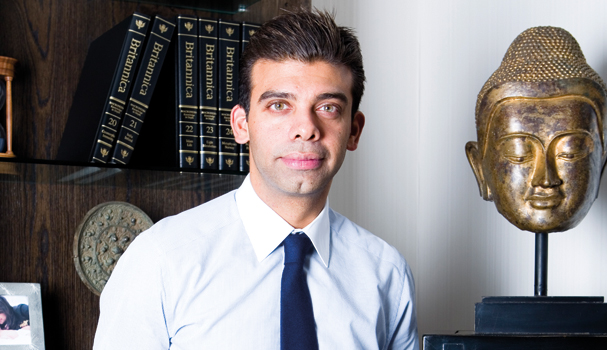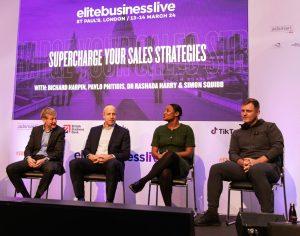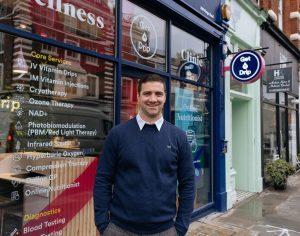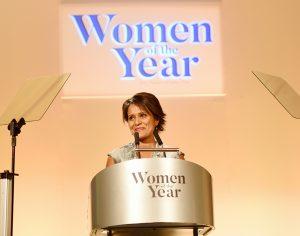Amit Bhatia appears to have it all. He owns a large stake in a well-known London football club. In 2004 he married Vanisha Mittal, daughter of Lakshmi Mittal, the Indian-born steel tycoon who Forbes estimated earlier this year to have a net worth of $16.5bn. The wedding is rumoured to have cost around £60m, included a performance by popstrel Kylie Minogue and a firework display over the Eiffel Tower. But amid the intrigue about his football interests, lavish wedding and his in-laws, it’s often overlooked that he’s a successful businessman and shrewd investor in his own right.
Let’s not forget that Bhatia’s own family are entrepreneurial royalty too. His father, a successful real estate entrepreneur, also runs Telestra Tradeplace, an aerospace company and, along with Bhatia’s older brother, Aneesh, bought a 21% stake in Air Asia India earlier this year. But the notion that Bhatia may have been handed success on a solid silver platter is well wide of the mark, he says.
“It wasn’t like that at all. I had a great upbringing, and I have the most incredible parents and the most amazing family. But we were taught the value of money from a super young age. There was a strict allocation on what the food expense was, what the telephone expense was, the fuel allocation when I eventually got a car in my junior year.” He quickly adds: “I bought the car myself.”
As a freshman at Ivy League university Cornell, he was bright and highly ambitious. But experiencing prudency at home just added fuel to the fire. “My parents gave me just enough to make sure that I was comfortable, but not so much that I didn’t have a desire to try to work a little bit harder.”
Successful business people often tell tales of their early entrepreneurial stirrings; selling sweets at school and undercutting the tuck shop, washing cars and trimming the neighbours’ hedges. Bhatia was no different. As a freshman at Cornell, he took photos of fellow newcomers to sell to parents who had forgotten to bring a camera. “I’d sell them for $10 a pop, which was a ton of money. My total pocket money was $200 a month at the time,” he recalls.
Another brainwave was selling refreshments to students and visitors who’d come to watch concerts held on the campus. “Adam Sandler was very popular, weirdly,” says Bhatia. “He used to come with a guitar and people would line up for a long time. So I used to stand outside and sell coffee and t-shirts.”

Whilst there wasn’t so much as a sniff of nepotism, Bhatia happily acknowledges that being surrounded by people with an entrepreneurial drive and passion for business helped guide him forward in all of his ambitions. “I was always entrepreneurial, as were my family. And when I married my wife, her family is extraordinarily entrepreneurial. I’ve had forces around me that, combined with my own spirit, have really helped shape the way things progressed.”
Upon finishing his studies in economics and investment management at Cornell, Bhatia went to work for banks Merrill Lynch and then Morgan Stanley. After a couple of years on Wall Street, he decided to take a year out in South America to do some social work. He claims this social responsibility was imbued by his grandmother, a former chairman of charity Red Cross.
During his year in Ecuador, the 9/11 attacks rocked New York. With subsequent changes to immigration policy, London-born Bhatia found it difficult to obtain a work visa.
He returned to London where he continued his career in investment banking mergers and acquisitions, during which time he began dating Vanisha Mittal. “By the time my visa came through, I loved London and didn’t want to leave, and I’d started seeing the girl who then became my wife. And so at the ripe old age of 24, my wife and I got engaged.”
Changes were afoot in his professional life too. Tired of the rat race, Bhatia decided to set up his own fund. Friends and family backed him as he founded Swordfish, an entrepreneurial fund so named because the entrepreneur was regularly told he resembled actor John Travolta who had starred in the movie of the same name. He got started with $1m under management, $5m in year two followed by a rapid acceleration. And it’s now reputed to run at just under $1bn.
But it’s fair to say Bhatia earned the success he experienced with the fund. “Vanisha will tell you that I probably gave her more sleepless nights than she’s had with the children because I ran a fund that meant I never slept more than two hours in a night. I would trade Asia when it opened at midnight, India when it opened at 4am, Europe when it opened at 8 o’clock, the US when it opened at 2pm, then the US would close at 9 and we’d start again at midnight. I did that for ten years.”

The hard graft paid off. One of Swordfish’s investments, Supercell, was recently named the fastest growing gaming company in the world. “They do $2.5m of sales a day,” explains Bhatia. Supercell is indeed flying high: the Finnish startup raised $130m at a whopping $770m valuation this spring.
Still, the long hours and erratic working patterns were taking a toll on Bhatia’s personal life. He and his wife have welcomed three children in the past four years and he wanted a role whereby he could spend more time with his family. “Eventually I said it’s time now to have a more structured life where I go to the office in the morning, come back in the evenings and spend time with the children and so on.” Having a happy home life is an important part of success, he says. “I don’t think people who are professionally successful but are unhappy personally are happy people.”
Perhaps this is the reason he names new business Hope his biggest success to date. The company is comprised of two business units bought by Bhatia and his shareholders, fused together to form the largest independent provider of building materials in the UK. “This is very personal for me. Right from the beginning, we put these assets together, we’ve named the business, we’ve given the business its own values; one of which is entrepreneurialism, the others are being responsible, reliable and understanding.”
Bhatia is bringing his own unique blend of entrepreneurial skills to shake up the sometimes staid world of construction. “Our corporate colour is purple because purple doesn’t exist. Most building materials are yellow or green. We’ve chosen purple because we want to stand out, we want to be different. We want to be innovative and dynamic. People say to me, ‘considering what you did, this is a really old industry’. To some degree, it is. It’s the oldest of industries. But you can still find ways to be really dynamic and entrepreneurial in old industries,” he says. And with this he rolls up his trouser leg. “I wear purple socks every day,” he says. “I think with most businesses you love the business with your head; you haven’t got an emotional attachment. This is different: I love Hope.”
It’s fair to assume that the other passion in Bhatia’s life, aside from family and business, is football. He represents his and the Mittal family’s investment in West London football club QPR and has been its vice-chairman since 2007, apart from a brief hiatus, following his resignation in protest at ticket price hikes.
At that time, the other two owners were Formula 1 boss Bernie Ecclestone and Italian businessman Flavio Briatore. “We wanted to be involved in football, we loved QPR, but one of the main reasons was that Bernie is from Formula 1, he knows sport. Flavio comes from sport. I always believe in partnering with people who know more than you and are smarter than you,” says Bhatia.

On this particular occasion, his approach to ‘back the jockey, not the horse’ didn’t necessarily go to plan. “We had this incredible man in Bernie Ecclestone who built Formula 1. He’s a genius. Flavio is a force unto himself and had his own way that he wanted to run a business. And then there was myself, and I said if I’m going to be part of a board, I need to make sure that I believe what we’re doing is right. I can’t just fall in line if I don’t agree with something.”
The real sticking point was on ticket prices. Ecclestone and Briatore wanted to hike ticket prices, whereas Bhatia was vehemently against the move. “I said if they did it I could not put my name behind the increase because I didn’t think it was right. So they did and I resigned.”
But Bhatia recognises this as being symptomatic of the trio’s inability to work around the same board table, not a personal vendetta. He speaks of his former partners with unquestionable respect and admiration and says he learned a lot during the four years of co-ownership. “In retrospect, at the age of 27 I was sharing a board table for four years with Flavio Briatore and Bernie Ecclestone. It was an awesome opportunity to learn.” In 2011, when Malaysian entrepreneur Tony Fernandes bought Ecclestone and Briatore’s shares in the club, he reduced ticket prices and reinstated Bhatia as vice-chair.
His love of football is shared by his father-in-law. Whilst one cannot quite imagine them in a London boozer sharing a pint of London Pride during the match, Bhatia says his relationship with Mittal is just like any other. “He’s extremely entertaining and very funny, so we spend a lot of time together. I see him pretty much every day, if not in the office, he’s on the seventh floor of this building, then he’ll come over to see the children on his way home from work. It’s really a very normal family. I know it’s a cliche to say it, but he’s the most normal, chilled out and funniest guy in the world.”
Still, one wonders if being married to the daughter of one of the most successful businessmen on the planet lends itself to a certain level of pressure. “It’s not pressure that comes from anybody else but me,” he says. “I’ve always had a desire to try to succeed, to stand on my own two feet and have my own identity. It’s something my wife wants for me. It’s something my father-in-law wants for me. It’s something I want for myself. But I guess in life, if there’s ever a good pressure and a bad pressure, this is good pressure because it makes me want to get up and come to work, and work hard. It’s my desire to be better as a person that I think drives me more than any pressure that others put on me.”
Certainly, Bhatia is more in the limelight than ever. His stellar business credentials are rightfully beginning to be acknowledged. He was awarded the title of Asian Business Young Entrepreneur of the Year in March at the Asian Business Awards. He also won the award for the Outstanding Young Executive at the Global Business Excellence Awards. Gongs aside, what does success look like to Amit Bhatia? “Success is doing better tomorrow than you did today, doing better the next day than you did the day before that. It’s to improve continually, to have big goals, and then try to achieve them. I don’t think life would be very fun if you set yourself tiny goals,” he smiles. ![]()
Share via:


















































